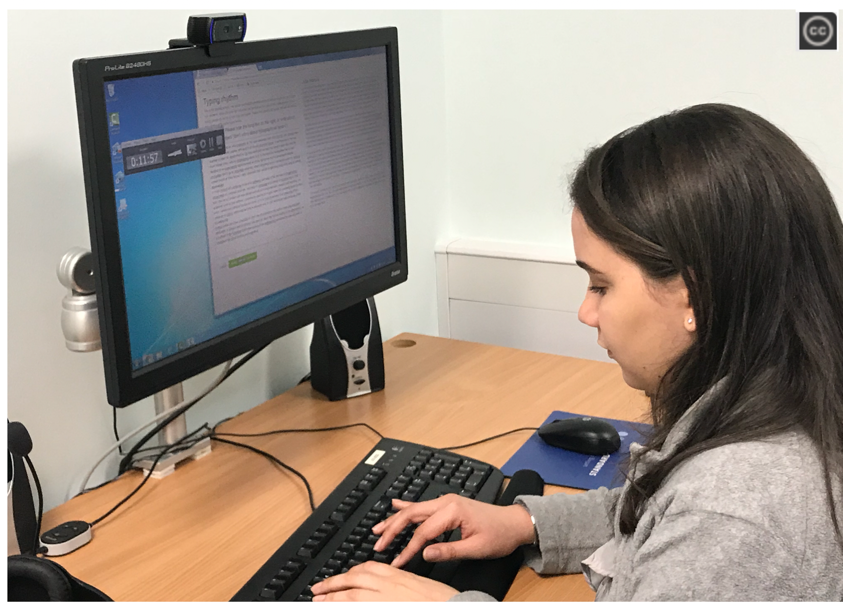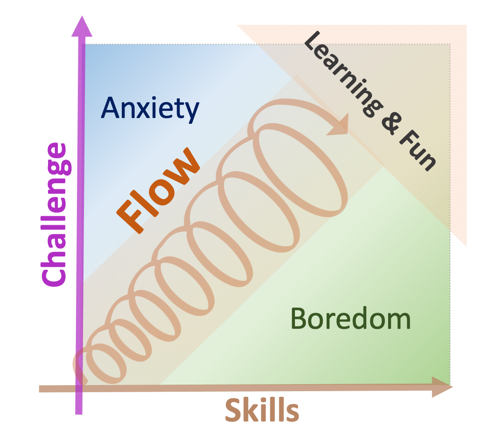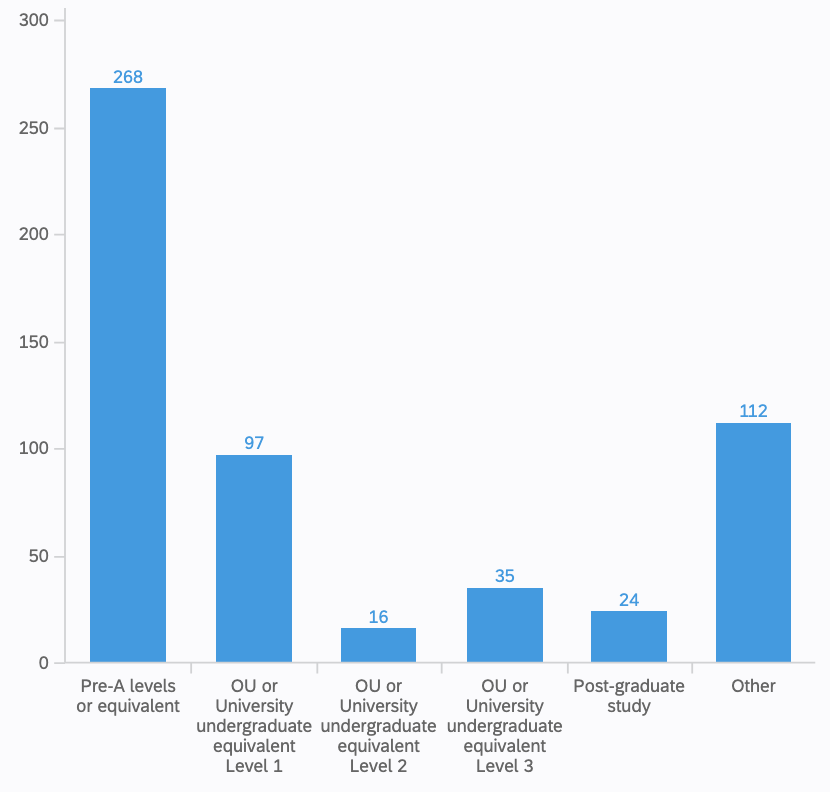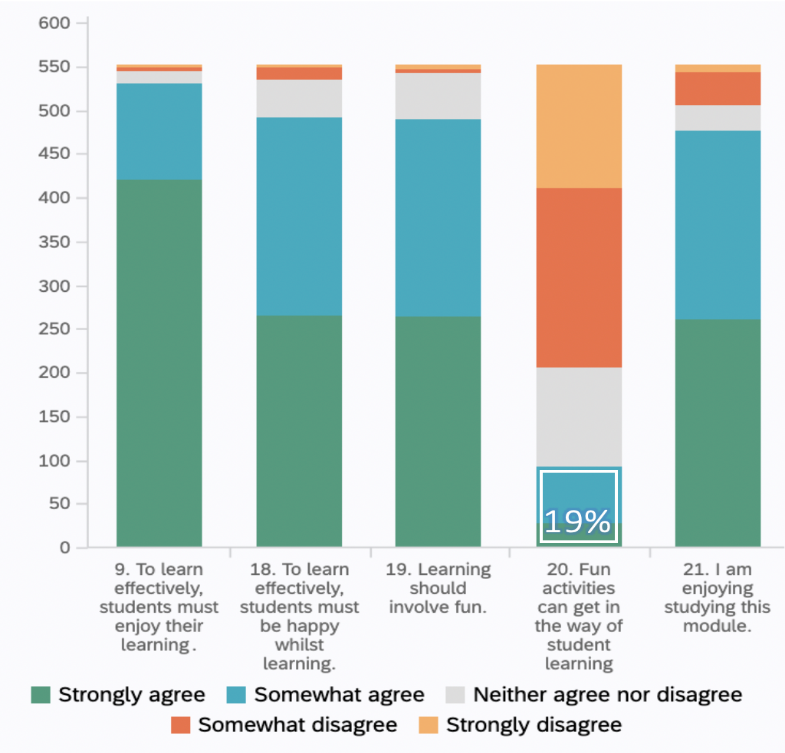
Due to the COVID-19 virus outbreak, many schools and universities have now closed their buildings, and have moved to learning at distance. Distance education Institutions are also affected, with face-to-face learning activities and fieldwork being curtailed.
During this disruptive time, new alternatives need to be provided and many universities are facing the task of developing their online learning provision as quickly as possible, in order to reduce the negative impact on their curriculum and their students study experience.
Various universities in Europe, South America and Africa have highlighted that many students are not prepared for the replacement of their full face-to-face learning with distance education.Consequently, understanding factors that influence learners’ engagement and enjoyment with online studies has been foregrounded for many educators, and their students, for the first time.
UNESCO indicate that COVID-19 virus affected 1,576,767,997 learners, which refers to 91.4% of total enrolled learners in 192 country-wide closures. Various universities in Europe, South America and Africa have highlighted that many students are not prepared for the replacement of their full face-to-face learning with distance education. Course teams are faced with the challenge of making their established learning programme available online in a short time and in ways that enhance students’ learning experience during difficult times.
Being responsive to students’ views about their learning, in this new context, is an important part of developing online pedagogies that might support learner well-being, and this includes a potentially controversial consideration of the role of fun.
In this article, I present preliminary research findings about online learning and fun, that are part of a series of research work of the Rumpus Research group of The Open University. (http://wels.open.ac.uk/rumpus). The aim is to open up discussion with all OpenLearners – students and educators across the world – interested in the topic of fun, and its role in enhancing students online distance education experiences.
What does research tell us about the effect of fun in learning?
Fun is seen as having different meanings by different researchers, so there is not a commonly agreed definition. Similarly, the effect of fun on learning is not agreed. Some studies suggest that fun has a positive impact to promote an enjoyable and self-motivating learning, instead of the unfruitful and boring teaching-centred experience. In stark contrast are beliefs that fun is not appropriate in the serious business of higher education.
These negative beliefs sometimes associate fun with being merely entertainment, or a ‘trivial experience’, and unconnected to the hard and effortful work required for learning. For example, according to the Centre for Education Economics (CEE, 2018): ‘Making lessons fun does not help students to learn’. Fun is considered unnecessary with little value for many institutions, mainly due to the belief that strict traditional teaching methods are the most effective, even those that are not enjoyable for students.
Conversely, other researchers have identified the positive impacts of fun in learning. For example, it produces positive physiological effects, such as reducing stress and improving alertness, which can enhance ‘performance’. This perspective has supported arguments that fun has a helpful effect on learning as it is associated with enjoyment, engagement and optimal experience, which draws on the concept of ‘flow’ developed by Csikszentmihalyi.
 Flow refers to an optimum state for students' enjoyable accomplishment, when their skills and challenges are balanced. Students' anxiety can be raised when their challenge becomes too high compared to their skill, and boredom occurs when challenge becomes too little compared to their skill level. This reduces their enjoyment and gives a negative effect on learning.
Flow refers to an optimum state for students' enjoyable accomplishment, when their skills and challenges are balanced. Students' anxiety can be raised when their challenge becomes too high compared to their skill, and boredom occurs when challenge becomes too little compared to their skill level. This reduces their enjoyment and gives a negative effect on learning.
This study considers that understanding students' perceptions and beliefs about fun and learning will be useful to promote engagement and enjoyment with distance education.
What are students’ views about fun in learning?
To explore students’ views about this topic, an anonymous mixed‐method research study was carried out with students from an introductory online module offered by The Open University (OU). In this study, 551 students completed a questionnaire, 206 of these participants also described their views about online learning and fun.
Participants were from a nine-month-module, which has twenty-four weekly units and four assessment activities. Data was generated in the last three weeks of February 2020 during the middle of the module. Two instruments provided for student-volunteers: a self-reflective structured questionnaire developed by Sheehy and an open and optional question created for them to give their individual views on any factor they wished. The instruments for data generation were developed in Qualtrics – with a special code to enable withdrawal without personal data collection.
 Undergraduates' previous studies
Undergraduates' previous studies
 Views of learning and fun
Views of learning and fun
A variety of students-volunteers joined the study. As an introductory course, this included a sample of ‘novice’ undergraduates who came from secondary schools. As this module is open to any interested learner; there were also undergraduates from other levels of study as indicated in Figure 2.
Findings from quantitative data (Figure 3) suggested a broadly positive view about the relationship between fun and learning in distance higher education.
The majority students – more than 90% – strongly agreed or somewhat agreed that
- To learn effectively, students must enjoy their learning
- To learn effectively, students must be happy while learning
- Learning should involve fun
- I am enjoying studying this module
However, a small group, approximately 19% of students, strongly agreed or somewhat agreed that
- Fun activities can get in the way of student learning.
Results drawn from qualitative data were summarised through two word-clouds based on the frequency of themes that emerged during the exploratory thematic analysis. This qualitative analysis indicated that the effect of fun in online learning varied according to the different meanings attributed to it by students.
A significant number of students presented positive views regarding the impact of fun in online learning. They identified various factors that students believed existed, for example, freedom, engagement, real scenarios, personalised learning, meeting people and sense of humour. These were associated with various benefits, for instance, to take the stress out, to better themselves, to keep up and catch up with learning with a better mindset. The following statements provide an overview of these.
There were students who also reported that fun is needed for academic engagement but felt that this was difficult to achieve in an online context, and so felt isolated and were ‘missing out’ from closer (and possibly fun) interactions with peers.
Students' views:
- It’s more about having the freedom to fit it in around my work, child and homelife so it takes the stress out of trying to better myself - so not being stressed and finding ways to keep up and catch up is definitely a better mindset to be in!
- Those who chose distance learning may still need some form of fun element to break up the intensity of learning
- It is fun to see other students’ comments on the forum, also nice to see our tutors get involved and crack jokes. It lightens the mood or pressure.
- The fun part is the interaction and meeting new people ... Distance learning gives me the opportunity to carry on with life and enjoy my studies at the same time. I think that would be called fun?!?
- Lots of relevant up to date/current activities, that can be related to in real life. Meeting other students doing the same course is good, and feels supportive, but not many take up the opportunity.
- Fun to have a non-serious outlook helps for some and at different times through their learning experience; to be able to cope and show self-competence will make you feel good.
- It helps me engage more with the content so therefore learning more effectively.
The following statements present a few examples from a minority of students who found it difficult to describe what fun means in online learning in general, because of the ambiguous and subjective nature of the concept.
More student's views:
- I think fun is a very ambiguous term, what might be fun to one person might be another person's idea of absolute boredom.
- How do you go about deciding what fun would be in distance learning? In what context? In a classroom? On a computer? It is a hard question to answer.
- Distance learning is more about the academic learning than the experience of university, and with such a wide range of students with regards to age, ethnicity, financial responsibilities etc, "fun" would mean too many different things to be effective
- I think ’fun’ is subjective. Some people find the online activities fun, others find reading about a subject that interests them is fun. Some may find engaging with other students at a tutorial to be fun, for others it may be the opposite of fun
However, negative views about fun and learning were also mentioned by a small group of students. The following examples indicate why for some students having fun is difficult or may get them out of learning. In other words, fun for some students is distraction and they prefer to study without wasting time. Some considered fun as part of social interaction, and not work, and so would prefer to work on their own ie. without fun. Some students felt that online activities were repetitive and that associated reading activities were boring, linking distance education with an explicit lack of fun. Furthermore, some students reported feeling under pressure or stressed, and that they did not expect online learning to be fun. For them fun is irrelevant, or antagonistic, to their stated need for more support from tutors.
Even more students' views:
- Trying to work my way through the module on my own, without distractions.
- How can it be applied in distance learning, without forcing students to interact with other peers? Fun activities could be viewed as a waste of time by certain students.
- Fun helps engagement, but... I'm struggling to stay on top of work and I'm constantly stressed …
- It’s hard because you feel kind of isolated, it’d be nice to see others more as I feel I’m missing out.
- Some activities can be rather repetitive which can lose my interest and I just find myself skim reading rather than taking it all in. I like watching videos and breaking the videos down, but when there is a lot of reading to do, it can become boring and tenuous.
- I have health issues, so to me having a tutor who emails regularly would be the best. Fun can aid learning but at the moment fun is not a state of mind that I have. I would find the addition of 'fun' or forced social activities tortuous.
To conclude this article, some recommendations were drawn from students’ reflective views about the relationship between fun and learning. This list was organised through the distinctive groups that might utilize the findings.
Recommendations for students
- Be aware of your personal views about fun to help you identify factors that affect your enjoyment and engagement with distance online learning.
- Identify what is difficult or boring during your own learning and discuss it to find alternatives, in order to avoid anxiety or lack of interest.
- Distance learning can potentially be lonely and isolating, so being open-minded to experience social online activities might be useful to be engaged with informal online learning.
- Fun can have a positive impact on your learning when you have enjoyable activities, feel motivated, focused and engaged with your studies. It is also an art form knowing when to have fun; how and why.
- Keep your study engaging using time allocation will be helpful; many students have busy lives and lack of time.
- Interact with other students on online and face-to-face tutorials who are doing the same course may be fun. You should be open to take up this opportunity.
Final Remarks
This article presented an exploratory study about students’ views related to fun and online learning through an open question for them to express with freedom their opinions anonymously and share what they considered significant about this topic.
Findings revealed that most of students find fun important with positive views about its value and effect. There are a few students who mentioned that learning is a difficult concept to describe and some of them presented negative views of fun.
This article invites anyone interested in online learning – including students, course teams, life-long learners and educational researchers to discuss this study about the value of fun for enjoyable, meaningful and productive online learning!
What is your opinion about fun in distance learning?
Should online learning be fun?
Please leave your comments on this brief questionnaire survey



Rate and Review
Rate this article
Review this article
Log into OpenLearn to leave reviews and join in the conversation.
Article reviews